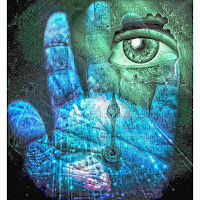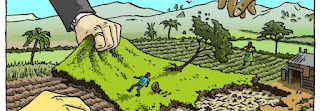Prafulla Kumar Mohanty
The "End of History"
champions like Francis Fukuyama have proved to be false prophets before their personal history ended.
Globalisation free market economy and liberal democracy with its capitalistic
dreams ended when the 2007 - 8 recession
challenged the inbuilt hubris of their concept of history. It's true that
between 1980 and 2008 there were no major wars except 9/11, 26/11 terror
attacks and the ISIS violence; a large number of Below Poverty Line people were
freed of their tag; democracies thrived
and new democracies sprang up: But
history is not subservient to certain Enlightenment thinkers' concept of human
welfare. The West is not the entire
world nor can ever be. What America and Europe think is not the thought of the
Asian countries or the Gulf countries. No ideology is acceptable to man for all
time for the human mind is often sick of its own ideals after a crisis blows over and thinks of dream alternatives
and contrarian architecture of life. The mind is often at war with itself for a
prolonged state of peace, prosperity, happiness creates its own stasis. The experience of the two Great
Wars provides enough material to disprove all our logic. The League of
Nations, humans (in the west) thought would create a new human order which
would embrace every man and ultimately a
global harmony will lead to peace and happiness. Russell wrote of World Government and much
before that the American President Wilson sang of World Governance in lyrical terms.
After the Second War the League was beleaguered by self contradictory squabbles
and the United Nations was born. The idea was virtually fathered by the
visionary Franklin Delano Roosevelt a former President of USA although he did
not live to see the UN take shape. His successor Harry Truman on June 26, 1945
addressing the signatories said, "You have created a great instrument for
peace and security and human progress in the world..." My dear readers
know what World Governance came out of
this World Body!
History did not end with the
Wars. The UN has not created any trust or faith in the minds of men and women
in East or West, in the Ist, IInd, IIIrd Worlds - now no more unipolar or even
multipolar if you take polarity as a benchmark or metaphor to explicate the
equations - all countries are inward looking except China. And this China now is poised uneasily to retract her own history.
America is on the decline, the entire European Union countries may follow the
Brexit path to protect identities. History today is like an atom in a magnetic
field uncertain where to stick.
India in the pristine past had
the chance to end history in the Western sense during the Mauryan Empire. From
Gandhar in the north to Magadh, later Kalinga was freed from unethical domination,
Alexander, Ambi and Dhananda were decimated by Chandragupta Maurya with the mastermind of
Chanakya leaving almost the whole of
India for Ashok to unite in peace and prosperity the entire country. After the
Kalinga War and the transformation of Ashok from Himsa (violence) to Ahimsa,
from brute muscularity to Buddhist nonviolence, peace and human togetherness,
there was indeed a time for history to end, at least to take a breather. But
that was not to be. Gandhi's India had raised some hope that the world may follow Gandhi's satya and ahimsa to make the world pause on the cusp of a new history of mankind, awakened to
life sustaining values in the inner
being. But no, that was also not to be. Not to be because time and history are
two different dimensions. Time, after Einstein is the fourth dimension of
reality, but history is not bound by
cause and effect dimensions of Space.
Nature and human destiny are
independent of each other, hence the directions of their movement or stasis are different. The Indians have been attacked by the Western
pundits that they have no sense of time and history. But the West does not
understand that in India the philosophers always believed in the circularity of time in contradistinction
to the rectilinear of the West. Oswald Spengler in his Decline of The West (1918) perceptively writes:
We men of the Western Culture are,
with our historical sense, an exception
and not a rule. World history is our world picture
and not all mankind's. Indian and Classical man formed no image of a world in progress, and
perhaps when in due course the civilization of the West is extinguished, there will never again
be a cultural and a human type in which "World History" is so potent a form of the waking
consciousness.
Nature does not interfere in the
freedom of human destiny which however is mostly determined by human responses
to the situational dynamics of moments. History
is recorded by humans and their understanding of a nation or mankind's destiny
is never a true statement. In any case history is never a changeless document
and that too is coloured by the ideology and bias of the historian concerned.
Arnold. J. Toynbee in a 1947 essay has clearly stated that - He is a middle
aged Englishman belonging to the middle class and these conditions of his birth,
class and nationality will definitely impact his perceptions. Hence we may
safely conclude that history is one mind's interpretation of a people's
activities in a time frame.
If the human spirit is
predictable (or static) in behaving in a particular fashion, that spirit is not Free. But freedom is the self contained existence of the spirit. The emotions,
actions, thought, response and reaction are man's material essence and the
action-reaction are seen: But very often man's response is not free. What
Nepal's Primeminister Oli did in may - June 2020 is not free action dictated by
Spirit. It was opportunistic action
under pressure. If this action is judged by historians as betrayal of
India's trust in Nepal's friendship,
that will be as wrong as the other judgement, unarticulated or stated,
"India's ill treatment and Big brotherly attitude had it coming".
Therefore any judgement by historians is temporary, for all human decisions, actions
are "true" of the given moment.
If we discard Nicolas Berdyaev's The Meaning of History (1923) as a
typical Christian view, we may also reject W.B. Yeats' A
Vision(Book V) as an imaginative foray into symbolic logic. The sphere and
the zyres, one representing eternity and the other (zyres) symbolising the
world of change are poetic visualization
of a great mind. But the Two Thousand year rotational repetition of civilization
and the phases culminating in a cycle peeking at the "Great Year" the interpenetrating cones etc, have not been demonstrated by our recorded history. What I
like to emphasize is that no culture or civilization comes to an end even if the
imagined 'heaven' is experienced on earth. All humans can never be free. All
humans can never be equal. All humans cannot be democrats: Unless robots of the same artificial intelligence in degree, order, emotion and feelings replace human
beings. All our science and technology can accomplish is a forward movement
towards an ideal state of well being. Keynes, Lincoln, Mao Tse Dong, Jefferson, Roosevelt, Hitler, Churchill,
Gandhi, Nehru, Ambedkar, Xi Jinping and
also Modi - these and many others, not
listed, have tried pursuing their ideals or negatively, 'Political Vulturism', to give a form and
shape to people in their own countries
or area of influence: But none have given us an Elysium or Hades beyond a few
years. History has its own dynamics. It has its own Darwinism.
Those who try to make the Present, the Future of mankind must remember, we have a Past too and that Past was
once the Present which the historians wanted to make the Future to make themselves ridiculed by
posterity. To end this piece, I may quote from Martin Rees's On The Future (2018): "Suppose
they( Scientists) could simulate a
universe as complex as the one we perceive ourselves to be in. A disconcerting
thought ( albeit a wild speculation) then arises: Perhaps that's what we
really are!"
Time is the context not the
content of the human mind.










